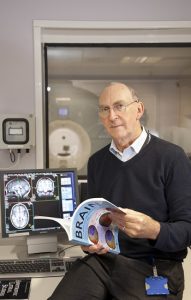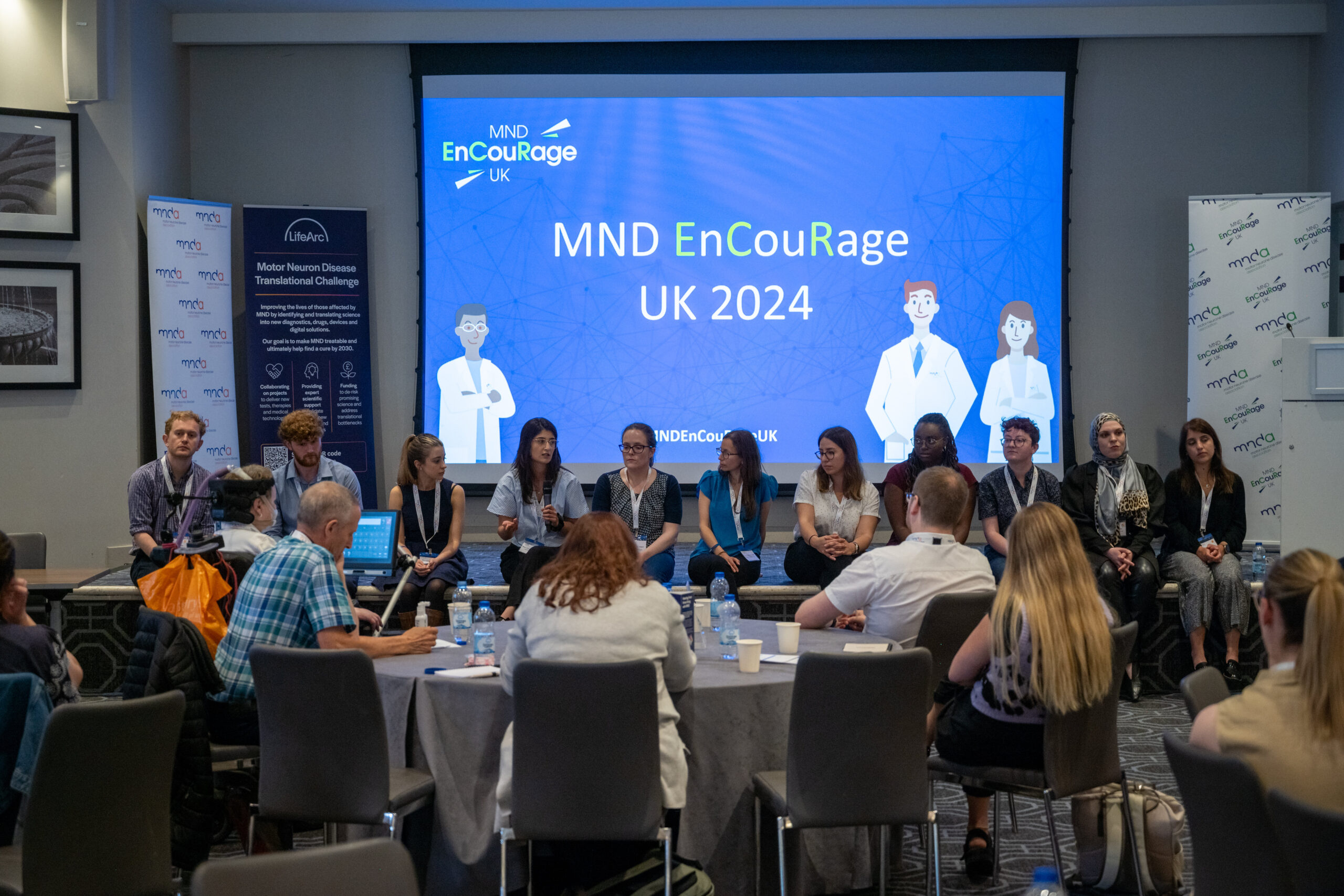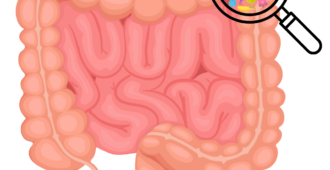Magnetic Resonance Imaging (MRI) technology is advancing rapidly as a tool for diagnosing and monitoring disease. In MND, MRI scans are used to understand changes that happen to the brain because of this disease.

Prof Nigel Leigh from the Brighton and Sussex Medical School (University of Sussex) is carrying out a study looking into changes to motor neurones using a new imaging method (our reference: 824-791).
Neurite Orientation Dispersion and Density Imaging (NODDI) is a type of MRI scan, and can see whether MND is affecting specific parts of motor neurones, called neurites, found within the brain. Neurites are the tiny parts of the nerve cells that branch out from the main body of the nerve cell, and are important in the functioning of the brain.
Prof Leigh and his team hope that the new imaging approach will tell us more about the sequence of events that cause motor neurones die, and how this relates to the symptoms of people with MND.
How NODDI is being used
People with MND and healthy volunteers are undergoing brain scans as part of this study. Information about thinking processes (cognitive change) and muscle strength is also being collected.
Dr Rebecca Broad, who is working with Prof Leigh on this project, has used NODDI to scan the brains of half the number of required participants. In the first year of this project she has shown that this new imaging technique is able to detect differences in motor nerve cell structure.
By looking at the data from this smaller sample of patients and volunteers, Dr Broad has discovered that in people with MND the density of motor neurones in the brain is reduced. The NODDI scans have also been able to show that the structure of the surviving motor neurones is altered in MND, leading to changes that we can detect in certain areas of the brain.

Dr Broad presented her preliminary findings to fellow researchers at last year’s International Symposium on ALS/MND where she was awarded the Clinical Research Poster Prize.
Dr Broad in now in the second year of her project, and is recruiting the remaining participants she needs, and analysing the imaging data in much more detail. This will involve comparing specific regions of the brain, such as those involved in thinking and decision making.
Throughout June 2016 MND Awareness Month will be highlighting the rapid progression of the disease in its powerful Shortened Stories campaign, sharing the experiences of people currently living with MND, or who have lost loved ones to the disease, through art, poetry and film.




